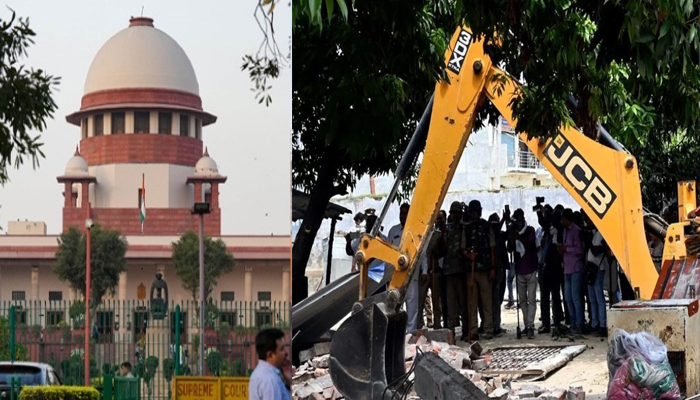
New Delhi: The Supreme Court on Thursday laid down stringent guidelines to curb “bulldozer justice” and stated that the executive cannot declare a person guilty, nor can it become a judge and decide to demolish the property of an accused person. The Apex Court directed that no demolition should be carried out without a prior 15-day notice to the property owner.
The Court stated that the notice should be served on the owner by registered post and also fixed on the outer portion of the structure. The notice must include the nature of the unauthorized construction, details of the specific violation, and the grounds for demolition. The demolition must be videographed, and any violation of these guidelines will invite contempt.
The judgment was delivered by a bench of Justices BR Gavai and KV Vishwanathan. The Supreme Court held that the state and its officials cannot take arbitrary and excessive measures, stating that the executive cannot declare a person guilty or decide to demolish the property of an accused.
Pronouncing the verdict on “bulldozer actions” by state governments to demolish properties of persons accused of crimes, the top court underlined that it had considered the rights guaranteed under the Constitution, which protect individuals from arbitrary state action. The Court explained that the rule of law provides a framework ensuring individuals know their property will not be taken away arbitrarily.
The Supreme Court also dealt with the separation of powers and how the executive and judicial wings operate in their respective spheres. It emphasized that adjudicatory functions are entrusted to the judiciary, and the executive cannot replace the judiciary in performing this core function. The Court stated that if the executive demolishes a person’s house arbitrarily merely because they are accused, it violates the principle of separation of powers. Public officials who take the law into their own hands and act in such a high-handed manner must be held accountable. The top court was addressing various pleas related to demolition drives conducted by certain states.
On October 1, the top court reserved its order after hearing the matter for an extended period. It also extended an interim order preventing the demolition of any property without permission until further orders. However, the interim order will not apply to unauthorized constructions, including religious structures on roads or footpaths, among others.
